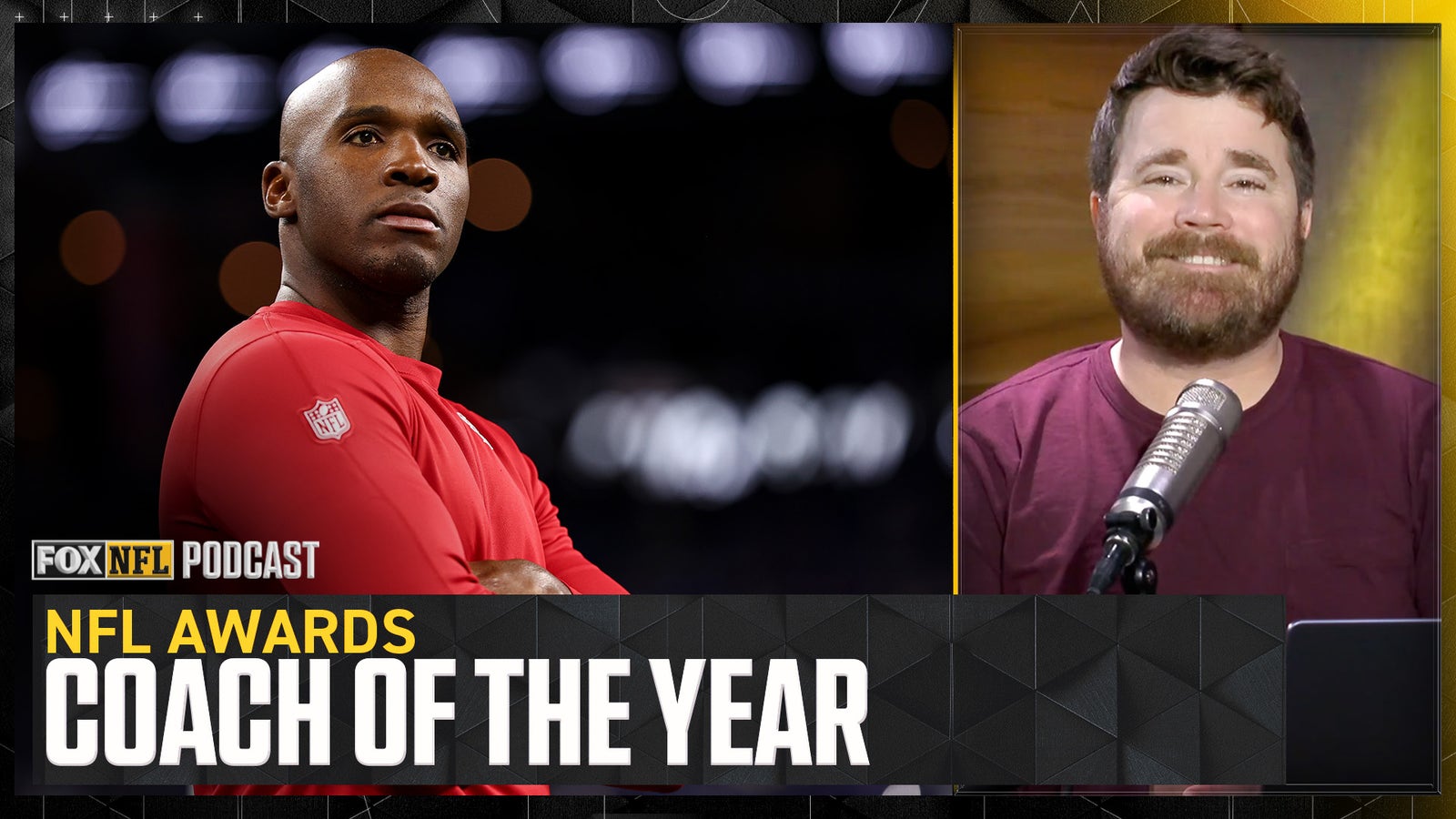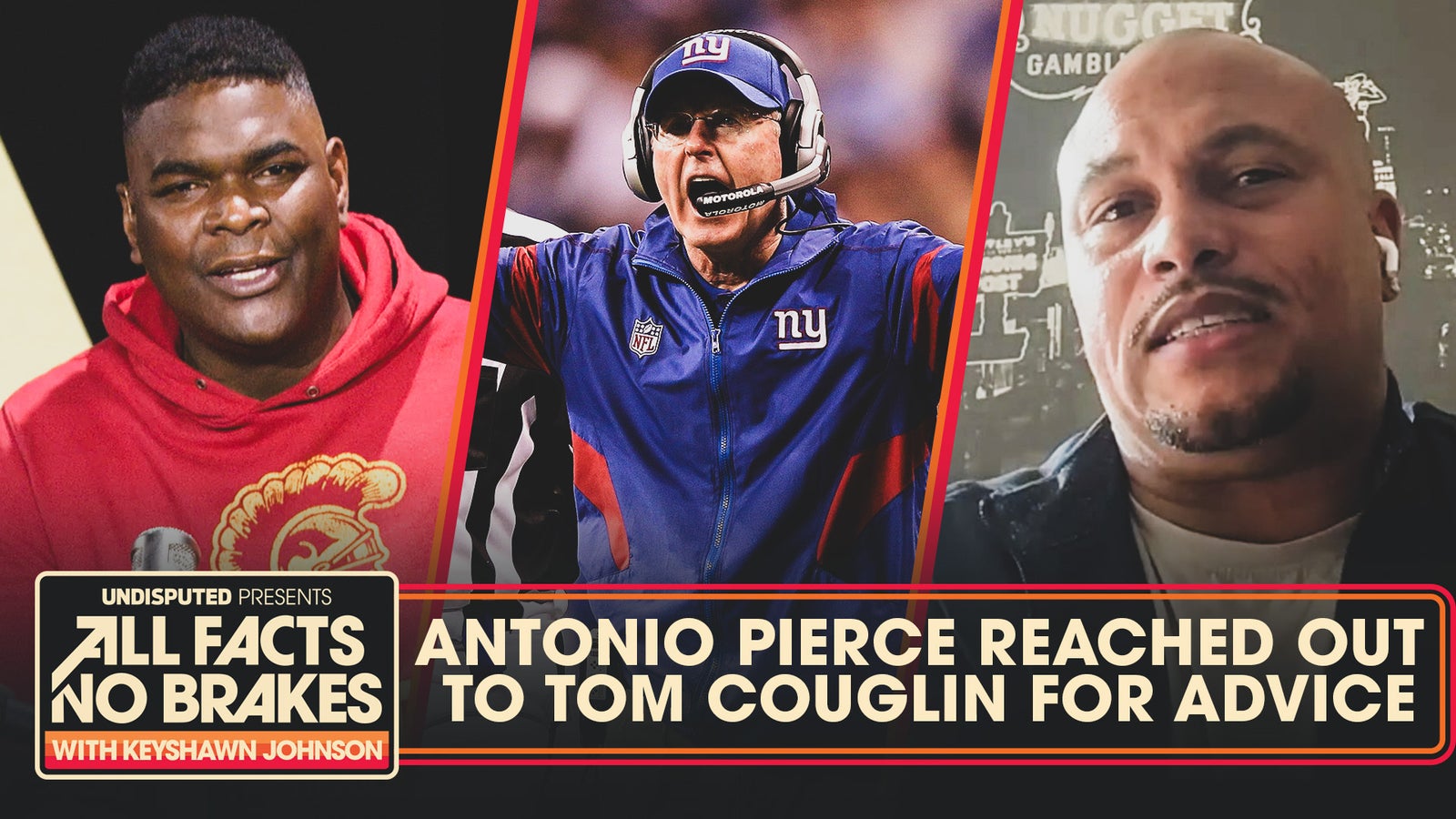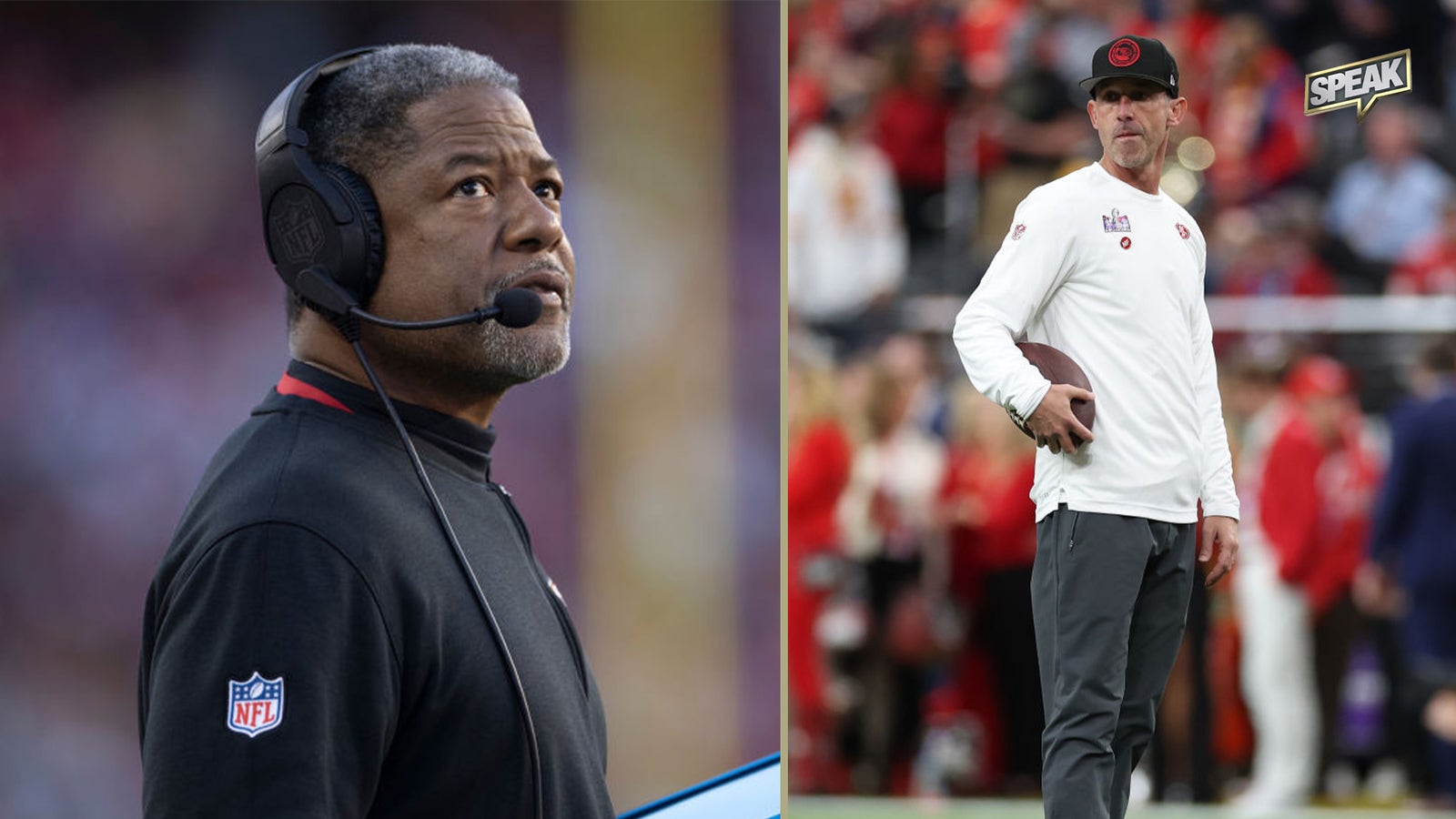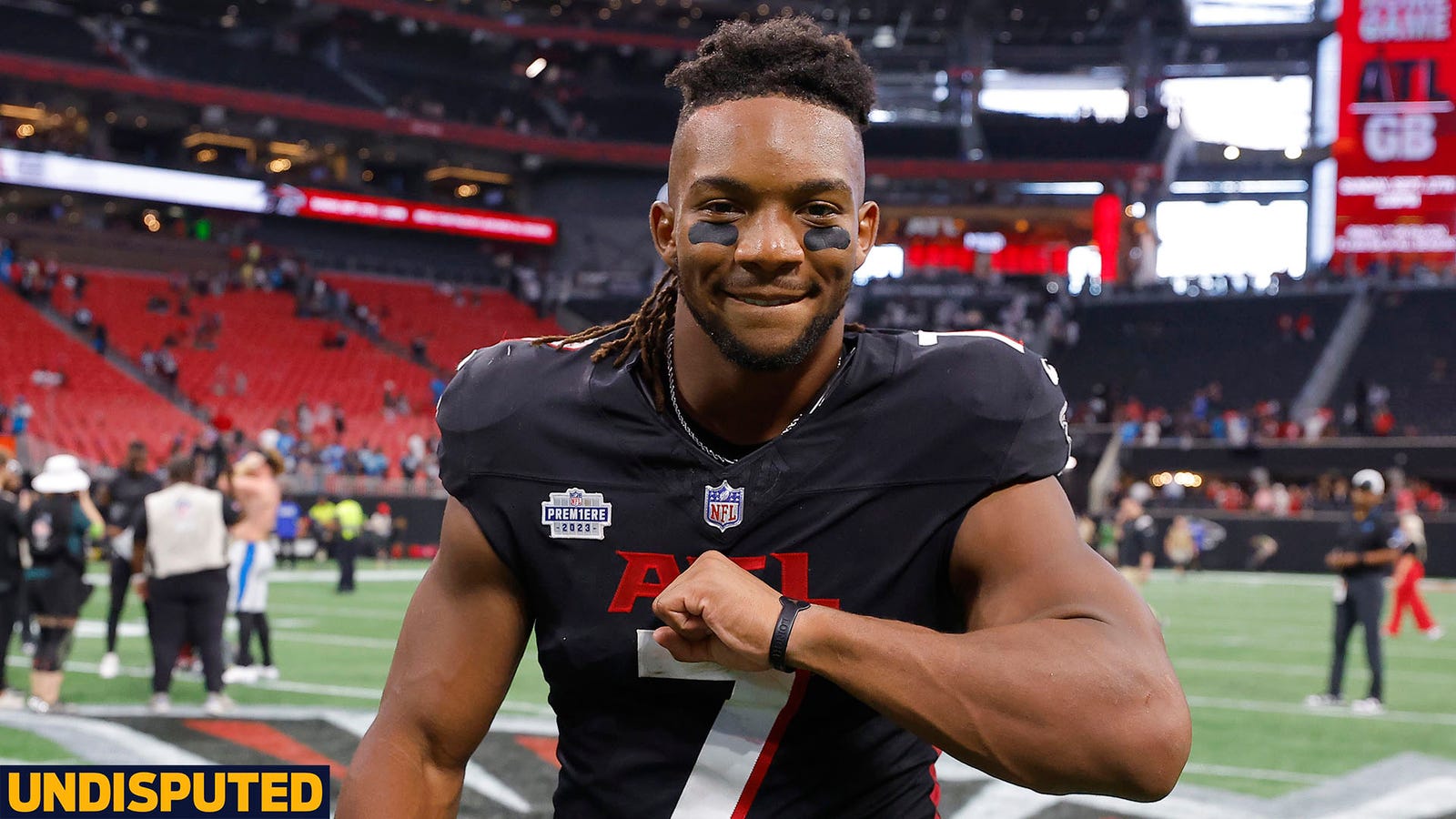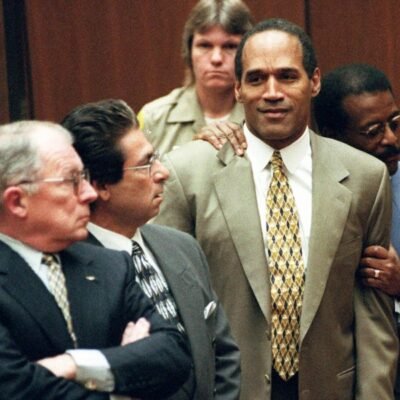In an offseason that has focused on where in the world Taylor and Travis are and why Justin unfollowed the Bears on Instagram, significant changes are happening in the NFL. That’s especially true on the sidelines, where legendary coaches Bill Belichick and Pete Carroll have exited after decades in the spotlight.
The result has been a changing of the guard, perhaps more extensive than anticipated. Young head coaches who are former NFL players have become a trend. And, most significantly, there has been an uptick in the hiring of minority head coaches.
While the league has long struggled to establish a pipeline of viable minority candidates, one instant success story might have helped crack the door open a little wider. DeMeco Ryans — a young minority head coach and former NFL Pro Bowler — turned around the Houston Texans in one season, taking them to the playoffs and a wid-card win after inheriting a 3-13 team.
“DeMeco is a leader,” Anthony Lynn, who coached with Ryans as part of the San Francisco 49ers staff two seasons ago, told FOX Sports. “He’s an intelligent football coach, like he was an intelligent football player. I expected nothing but success from DeMeco. He is so sharp and impressive.
“Guys respect him. He had success as a coordinator, and he always put guys in position to have success. And that’s how you get the attention of NFL players — if you help them become better players. And when you can do that and be as sharp as he is organizationally, that’s all good.”
After Ryans’ success and in a copycat league, is it a coincidence that four of the eight new head coaches are people of color? That includes three Black head coaches: Antonio Pierce of the Las Vegas Raiders, Raheem Morris of the Atlanta Falcons and Jerod Mayo of the New England Patriots. Dave Canales, who is Mexican-American, was hired by the Carolina Panthers.
Five of the eight new hires have defensive backgrounds, perhaps another trend started by Ryans, who was San Francisco’s defensive coordinator before being tapped by the Texans. That’s a major shift from the offensive wizards hired in recent years out of the Sean McVay and Kyle Shanahan coaching trees.
“Antonio Pierce would be a bit of an unorthodox hire, not only because he had never been a coordinator, but just because of the packaging — a little rough and tumble,” FOX Sports NFL analyst Bucky Brooks said. “He’s got the earring in. He embraces the Raiders’ spirit and those things. I can’t say that five years ago Antonio Pierce would be hired in any capacity as a head coach. But that’s kind of been a breakthrough, him being able to get a job.
“And if he’s successful, it will open more opportunities for guys that don’t necessarily look like the guys in the upper suites.”
This year’s hiring cycle also appears to be a shift toward former NFL players, harnessing the leadership, authenticity and connectivity they can bring to an organization. The immediate success of Ryans in Houston and former NFL tight end Dan Campbell leading the Detroit Lions to the NFC Championship Game are prime examples of what organizations led by former players can accomplish.
“I think that NFL owners are maybe a little more open-minded to what the former player brings to the table,” said Colts defensive backs coach Ron Milus, a 24-year NFL coaching veteran. Milus was with the New York Giants when Pierce was a player there. “Sometimes when you go into it, you’ll think a former player is not going to want to do that grind.
“But you know what? They did the grind, especially the guys that have gotten to the point where they played 10 years or so. That was a grind. Those years do count for something, and those experiences do count for something. And so, AP and some of the guys that have gotten an opportunity of late, I’m fired up for them.”
This year’s hires bring the NFL to a historic league-high nine minority head coaches (28% of the 32-team league) heading into the 2024 season. Black players make up 53.5% of the league and the number of players of color is at 66.7%, according to last year’s NFL Racial and Gender Report Card.
“Looking at former players as potential head coaches has been an obvious thing to do for many years,” Richard Lapchick said in an email to FOX Sports. Lapchick is the former director of The Institute for Diversity and Ethics in Sport (TIDES) and a longtime pioneer for racial equality. “Deliberately doing it now will help. I think it will also help owners to know who they’re hiring and make them feel more comfortable.”
According to the TIDES report, the percentage of people of color working as assistant coaches in the NFL reached an all-time high of 43.6% in 2023. That’s a big jump from a decade ago, when only 31.8% of assistant coaches were people of color.
However, it’s not all good news. All three Black offensive coordinators in 2023 were fired this offseason, leaving none in the league. Being an OC, of course, is one of the main pipelines to becoming an NFL head coach.
“We still have a lot of work to do,” NFL Commissioner Roger Goodell told reporters during Super Bowl week. “We are not satisfied where we are. We think that diversity is very good for us as a league. It has made us better. It gives opportunities to talented people. The hiring cycle was obviously encouraging from a head-coaching standpoint, but we don’t look at this at just the coaching level or offensive coordinators. We look at this across the board. We look at this in coaching, in ownership, in presidents and in general managers.”
While Pierce notes the jobs gained by minority head coaches in this year’s hiring cycle, he also understands more needs to be done on the offensive side.
“With myself, Mayo and DeMeco, you’re talking about guys that were captains,” Pierce told Keyshawn Johnson on the “All Facts No Brakes” podcast. “They were leaders. They were the alphas on their teams. They demanded respect and earned respect by their work ethic, both on and off the field and in the classroom. And making those tough decisions in conversations with their counterparts.
“But if you want to flip it to the other side, you need to see more growth with more African-Americans and minority coaches at the quarterback positions and offensive coordinators. They have got all these rules in the National Football League that you have to abide by, but what’s really real? Are we really putting guys in a position to move up? And then what’s their opportunity? What’s their career length as far as their amount of time given in case they have a bad year? Do they get another shot?”
On the offensive side of the ball, the NFL trend continues to be largely a stream of whiz-kid white coaches.
Kyle Shanahan’s career serves as a microcosm of the league’s complicated relationship with race in the coaching ranks. Shanahan is a white man who inherited the schematic equivalent of a trust fund from his father. In the 1990s, Mike Shanahan developed an offense based around a zone-running scheme. With Broncos quarterback John Elway, that system dominated — just like it has with Kyle’s 49ers in the current era.
There’s no doubt Shanahan is a tremendous talent — not just one of the best teachers and offensive innovators, but also one of the best in-game playcallers, too. He has tweaked his system to the point where his father’s influence is barely recognizable. But there’s also no denying that his start in coaching was partially a product of nepotism.
Shanahan is also one of the brilliant offensive coaches, along with McVay, Zac Taylor, Matt LaFleur and Mike McDaniel. They are predominantly white coaches, except for McDaniel, who is biracial. Recently, these offensive minds dominated the hiring cycle, which meant white men dominated the hiring cycle — many of them coming from the Shanahan scheme or the Shanahan staff.
While Shanahan rose in a system that has historically prevented minority coaches from getting the opportunities they deserve and removed them from those roles prematurely, he has been a part of the solution for advancing minority coaches. Since the NFL introduced the compensatory pick formula for minority hires in 2020 — teams that lose a minority coach or top football executive to another team are awarded third-round selections — Shanahan and the 49ers have received the most picks.
Since the implementation of the rule, Shanahan’s team has lost Ryans to the Texans, Robert Saleh to the Jets and McDaniel to the Dolphins.
That has netted six third-rounders — so many that some of the other 31 teams have been frustrated by San Francisco’s influx of extra talent, according to ESPN. It’s a sign that the NFL still has plenty of issues with race because those frustrated with the 49ers’ success in developing minority coaches are completely missing the point of the system. It’s not supposed to be about the picks. It’s supposed to be about the people.
The NFL implemented that incentive system as an adjustment to the Rooney Rule, the league’s effort to promote diversity in the NFL that goes back to 2003. The Rooney Rule requires teams to interview at least two minority candidates for every opening. The efficacy of the rule has its merits and its issues.
It seems, at times, that some NFL teams have interviewed minority candidates when they already had white coaches in mind, just to fulfill the requirement. That was what Brian Flores alleged — among other things — in a lawsuit against the league. Since the Dolphins fired him as head coach in 2021, after a 24-25 record in three seasons, Flores has received a head-coaching interview from only one team, the Arizona Cardinals.
While some teams seem to interview coaches in bad faith, the program also provides strong benefits. Through the Rooney Rule, qualified minority candidates get exposure that promotes their talents around the NFL, a process that naturally leads to professional advancement.
It’s a harsh reality that NFL teams need an incentive system to develop and promote minority coaches. But perhaps that’s what the league needed to get results — a simple appeal to coaches and general managers’ endless pursuit of a competitive advantage.
Flores is currently the defensive coordinator for the Minnesota Vikings. Other potential head-coaching candidates of color serving as coordinators include Lions DC Aaron Glenn, Ravens DC Zach Orr and Dolphins DC Anthony Weaver.
Between those latter three, they have 25 years of NFL playing experience. That bodes well for them when considering the current trend. Along with Ryans, Pierce, Campbell and Mayo, other former NFL players currently serving as head coaches include Kevin O’Connell of the Vikings and Jim Harbaugh of the Los Angeles Chargers.
“Obviously, look at what’s happened in Detroit,” Milus said. “Even though [Campbell] is not a minority, he’s a former player that’s done good. They’ve kind of taken on his personality. We scrimmaged against them last summer, and you could see it coming, as far as the way they practiced. I am not surprised Detroit’s like they are.
“And I can see Pierce is that way a little bit, too. He’s got a little grit to him. So it will be interesting to see where the Raiders are this year.”
Brooks said coaches like Pierce can quickly change the culture in the building because of their authentic nature.
“I think what you are seeing is maybe owners feel a need [for coaches] to have better connectivity with the players,” Brooks said. “And so maybe that’s why so many of the head-coaching hires have skewed younger. I think that same connectivity and chemistry also [have] led to more former players being coaches, because the dynamic has changed.
“There’s an instant credibility that is created when you have a former player in the front of the room. The players can feel the person walked in their shoes, so they have that mutual respect out the gate. But they have to retain it with intelligence, being able to be smart in schematics and all that other stuff. But it does give them an edge. A lot of it comes down to connectivity: Can you relate, can you connect with the players? Because ultimately, it’s a player’s game.”
Lynn was part of a surge in minority hires in 2017. Hired by the Chargers right before the team’s move from San Diego, Lynn helped guide the Bolts through a tumultuous transition that included moving to a new facility in Costa Mesa, playing in a 25,000-seat temporary stadium where they were routinely booed by opposing fans and playing in an empty arena at SoFi Stadium during COVID. He was let go after four seasons, finishing with a 33-31 record.
He recently took a job as run-game coordinator with the Washington Commanders after working for two seasons as the running backs coach with the 49ers. Lynn noted that it can be harder for Black head coaches to get a second opportunity in the NFL.
For example, it took Morris 13 years to get his second top job after his 2009-11 head-coaching stint with the Tampa Bay Buccaneers.
Brooks said for the current crop of Black head coaches to keep their positions, the challenge is simple: Win games. He points to former Cincinnati Bengals coach Marvin Lewis as an example for Black head coaches now.
“You have to be twice as good to get half as far,” Brooks said. “And that standard, that expectation, they must carry that. And it’s not going to be fair in terms of the length of stay, or how many opportunities and those things. But you have to figure out a way to do it with what you have until you can eventually get what you want.
“I think the prime example is Marvin Lewis doing what he did in Cincinnati. He showed the blueprint for how to do it, because he didn’t have a lot of resources, but he made Cincinnati into a very respectable team that was a perennial playoff contender. So, I think guys have to understand that you’re up against it, but nobody cares. You have to figure out a way to win with what you have, and you can’t complain about it.”
Eric D. Williams has reported on the NFL for more than a decade, covering the Los Angeles Rams for Sports Illustrated, the Los Angeles Chargers for ESPN and the Seattle Seahawks for the Tacoma News Tribune. Follow him on Twitter at @eric_d_williams.
Prior to joining FOX Sports as the AFC East reporter, Henry McKenna spent seven years covering the Patriots for USA TODAY Sports Media Group and Boston Globe Media. Follow him on Twitter at @henrycmckenna.

Get more from National Football League Follow your favorites to get information about games, news and more


